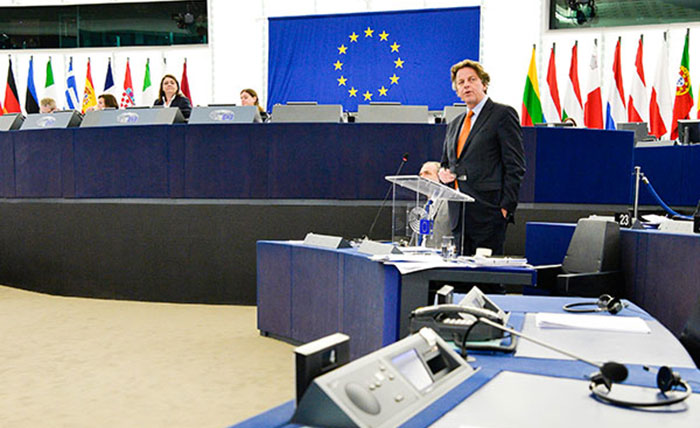The start of EU accession negotiations with Serbia and the progress made in normalising relations between Serbia and Kosovo was welcomed by MEPs in two resolutions passed on Thursday. They also stressed that these relations would be helped if all EU member states were to recognise Kosovo
MEPs welcome the progress made in 2015 in normalising relations between Serbia and Kosovo and call on Belgrade and Pristina to move forward with the full and timely implementation of agreements reached so far, noting that this is one of the conditions for Serbia’s accession to the EU.
“We send out a clear message – Serbia is on track towards the European Union. The opening of the first negotiation chapters in the accession process, due to further normalisation of relations with Kosovo, was a well-deserved success for the country”, said EP rapporteur on Serbia David McAllister.
The resolution on Serbia, passed by 498 votes to 66, with 70 abstentions, welcomes the opening of the EU accession negotiations. It calls on Serbia to pursue its systematic reforms, ensure that the work of judges and prosecutors, as well as that of the media, is free from political influence and step up its efforts to fight corruption and organised crime.
EP rapporteur on Kosovo Ulrike Lunacek said that “the future of an independent Kosovo lies in the European Union, but it needs to do more to fight corruption and organised crime and start delivering tangible results, also in the economy.”
“Kosovo is also the only country in the Western Balkans whose citizens are not allowed to travel freely in the EU for three months. This anomalous situation has to change quickly in order to ensure that citizens do not feel “locked-in” anymore”, she added.
MEPs take note that five EU member states have yet to formally recognise Kosovo, adding that if all EU member states were to do so, this would bring more stability to the region and help to normalise relations between Kosovo and Serbia.
MEPs also stress that EU-Kosovo Association Agreement, ratified by the European Parliament on 21 January, provides a powerful incentive for reform and paves the way for Kosovo’s integration into the EU. Media and judiciary independence, fighting high-level corruption and organised crime and labour market reforms are just a few areas of major concern, the resolution says.
The resolution on Kosovo was passed by 403 votes to 130, with 104 abstentions.
*This designation is without prejudice to positions on status, and is in line with UNSCR 1244/1999 and the ICJ Opinion on the Kosovo declaration of independence.




